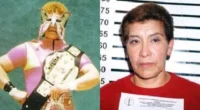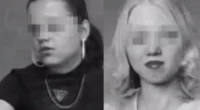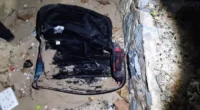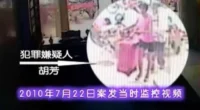Harboring dissatisfaction towards his brother’s girlfriend, Tao Qiang obstructed their marriage plans, plotting murder and concealing his crime.
Victim: Kao Mai
Killer (victim’s brother-in-law): Tao Qiang
The victim’s husband (the killer’s brother): Mu Qiang
The victim’s son-in-law: Wang Fu
On the morning of September 23, 2002, Yiguan district, Dongchuan city, Thiemxi province, received reports of a murder in Cao Mieu village. The victim, 59-year-old Kao Mai, was discovered dead in the living room by neighbors, with three stab wounds on her neck.
At the crime scene, Kao Mai was found lying beside the sofa not far from the door, with no signs of forced entry or struggle inside the house.
According to neighbors, Kao Mai was a widow, leading a normal life, keeping to herself, rarely going out, and having a simple social circle.
The forensic doctor confirmed Kao Mai’s death occurred during the late night hours, with the three stab wounds severing her carotid artery, causing rapid death. The victim’s head was also injured by a blunt weapon. However, neither of the weapons was found at the scene.
The police speculated that the perpetrator and the victim were acquainted; otherwise, why would a widow open the door in the middle of the night?
Kao Mai had several hundred yuan in cash on her person, and there were no signs of a robbery in the house. Apart from the bloodstains on the floor, there were tea residue on the victim’s chest, seemingly spilled from a cup of tea on the table, and the word “Lai” written in blood on the washing machine. Upon examination, the word was written with the victim’s own blood.
Based on the blood evidence at the scene, the police determined that Kao Mai hadn’t moved after being wounded and fell to the ground. The blood-written word could only have been left by the perpetrator. No suspicious fingerprints or footprints were found at the scene, indicating the perpetrator deliberately cleaned up.
Preliminary investigation led the police to believe the suspect was “an adult male familiar with the victim.”
Villagers revealed that Kao Mai had a close relationship with a man named Mu Qiang, 62, who lived nearby. Both had been considering marriage. Previously, Kao Mai had two other boyfriends, but they were married and had no motive for murder.
To find new leads, the police re-investigated the scene and found a piece of cotton soaked in blood under the sofa near the body. Upon comparison, the cotton was torn from Kao Mai’s old cotton blanket on the bed, with the large bloodstain on it belonging to the victim.
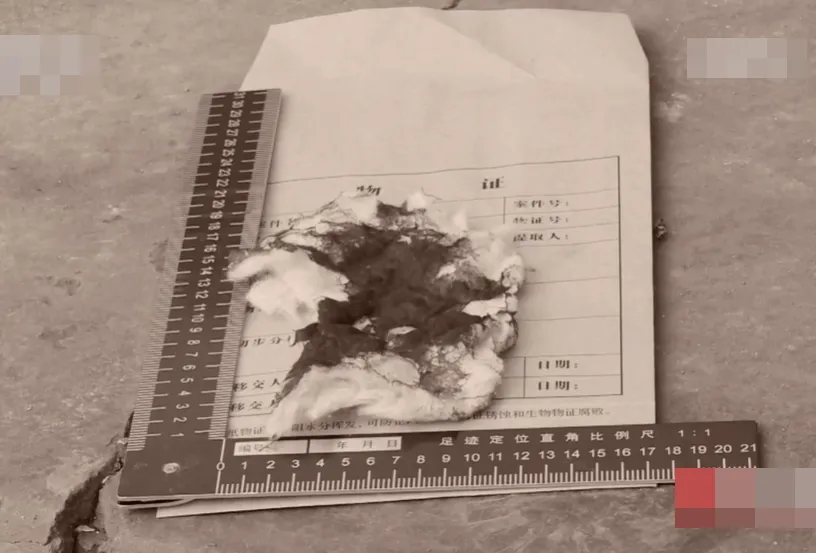
The police speculated that the perpetrator used the cotton to wipe blood or clean up the scene, so they sent it for DNA testing to find his remaining DNA. The results showed DNA from another man besides the victim. The police immediately collected blood samples from all adult males within a 50km radius of Kao Mai’s house for DNA comparison but found no matches.
During the investigation impasse, the police received a call from Cao Mieu village reporting another murder. The caller was Mu Qiang, Mai’s boyfriend.
However, when they arrived at the scene, the police found Mu Qiang’s younger brother, Tao Qiang, who was believed to have been killed, lying on the bed. Tao Qiang, over 30 years old, had been deaf and mute since childhood, and was the half-brother of Mu Qiang’s mother. Both had not married, so they had been living together since their parents died.
That midnight, Tao Qiang suddenly woke his brother, signaling that he had been attacked by a masked assailant while going to the bathroom, slashing his neck. Mu Qiang hastily called the police in panic, mistakenly claiming that his brother had been killed.
However, the sharp-eyed investigator noticed something unusual about Tao Qiang. He always appeared tense in front of the police, with a small and shallow cut on his neck.
During questioning, the investigators learned that on the night Kao Mai was attacked, Tao Qiang had vomited several times around midnight, then woke up before dawn to wash and hang clothes worn the previous day. During the previous blood sampling, Tao Qiang claimed he couldn’t provide a sample due to a medical examination. A few hours before the “attack,” Tao Qiang was visited by a worker who took samples for testing at home.
However, the results showed that Tao Qiang’s DNA did not match the DNA on the cotton swab.
The police re-examined the entire case and discovered, in addition to Tao Qiang, another man who had not been sampled named Wang Fu, the second son-in-law of Mrs. Kao Mai, who worked as a truck driver.
Mrs. Kao Mai had one son and two daughters. On the day she was attacked, her son took his pregnant wife to the district hospital. Both daughters were married in another village. The second son-in-law had been at odds with Mrs. Kao Mai before marriage; she even skipped their wedding, and their relationship only resumed after both couples had children.
Wang Fu explained that he had been out delivering goods for several days, so he couldn’t cooperate with the blood sample.
The comparison results showed that the male DNA on the cotton belonged to Wang Fu. However, after investigating Wang Fu’s whereabouts, the police found out that on the night of the murder, he was hired by someone in the village to drive to Xi’An to deliver coal, returning at 4 am, with no time to commit the crime. Surveillance cameras on the road confirmed Wang Fu’s alibi.
According to forensic analysis, all the men who had come into contact with the cotton swab could have left their DNA on it, but one touch didn’t mean they were the killer. The perpetrator certainly touched the cotton swab, but not all DNA samples on it could be extracted based on the local technical capabilities at the time. The investigative team decided to send the evidence to the Ministry of Public Security for more accurate testing.
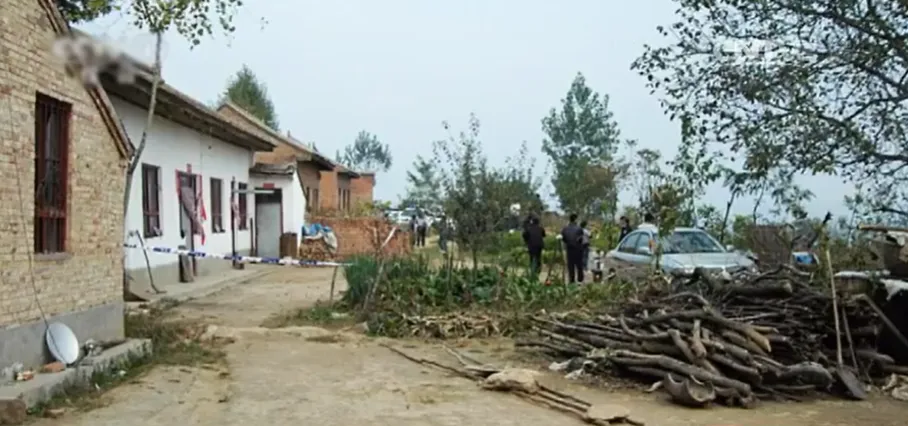
In February 2003, the Ministry of Public Security announced that besides the victim’s and Wang Fu’s DNA, there was also a small amount of Tao Qiang’s DNA on the cotton swab.
During the second interrogation with the assistance of sign language experts, Tao Qiang couldn’t bear the psychological pressure and quickly confessed.
According to his confession, when his mother was alive, she disapproved of the relationship between Mr. Mu Qiang and Mrs. Kao Mai, leading to frequent arguments between the two families. Tao Qiang always listened to his mother and also disliked his “future sister-in-law,” even blaming Mrs. Kao Mai for the family’s discord. However, due to his deafness, he couldn’t express his dissatisfaction, and no one knew about Tao Qiang’s resentment towards Mrs. Kao Mai.
After his mother’s death in August 2002, the relationship between Mr. Mu Qiang and Mrs. Kao Mai became closer, and Tao Qiang occasionally helped his “sister-in-law” with some household chores. He always obeyed, so neighbors thought their relationship was good, but in reality, Tao Qiang was very uncomfortable.
Seeing his mother pass away and the two planning to get married, Tao Qiang blamed Mrs. Kao Mai for causing his mother’s death, so he was determined not to let them succeed. Mr. Mu Qiang and Mrs. Kao Mai had no idea about the resentment in their younger brother’s heart.
On the night of September 22, 2002, Tao Qiang tricked Mrs. Kao Mai into opening the door, immediately striking her head with a stick… Out of resentment, Tao Qiang poured tea on the victim and quietly cleaned up the scene. To mislead the investigation, although he had never attended school, he tried to recall how to write “Lai” in blood, which was the surname of a family in the village.
Tao Qiang thought that this would eliminate suspicions about him, but then the police asked all men to take blood tests to cooperate in the investigation. In panic, he acted out a scene of being attacked.
After being arrested, Tao Qiang confessed to hiding the murder weapon.
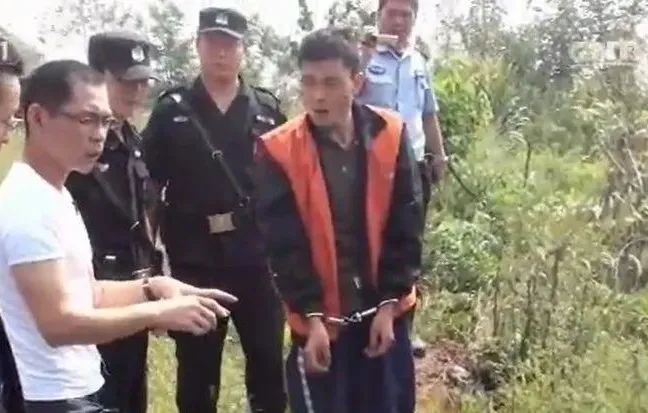
Villagers were astonished to learn that Tao Qiang was the murderer of his “sister-in-law” because they usually saw him as gentle and honest.
According to psychological experts, Tao Qiang was always sheltered by his mother and brother, lacking maturity in thinking. Being disabled since childhood, Tao Qiang was always deemed unable to establish himself. Over time, he gradually accepted this fact and got used to accepting his mother’s opinions without thinking, thus being influenced by his mother’s resentment towards Mrs. Kao Mai.
After his mother’s death, Tao Qiang felt that he only had his older brother left, but he was planning to get married and start a new life. Tao Qiang wasn’t ready to accept a sister-in-law whom his mother despised, nor was he ready to live independently. This complex psychology may have caused him to feel crisis and abandonment. The hidden resentment and fear ultimately led Tao Qiang to lose his sanity.
Regarding the second son-in-law’s DNA being on the blood-soaked cotton swab, after several inquiries, Wang Fu remembered that he and his wife had visited Mrs. Kao Mai over a month before the murder. He got drunk and vomited on the old blanket that Mrs. Kao Mai spread as a mattress on the bed, which was the blanket torn by the perpetrator and soaked with blood.

